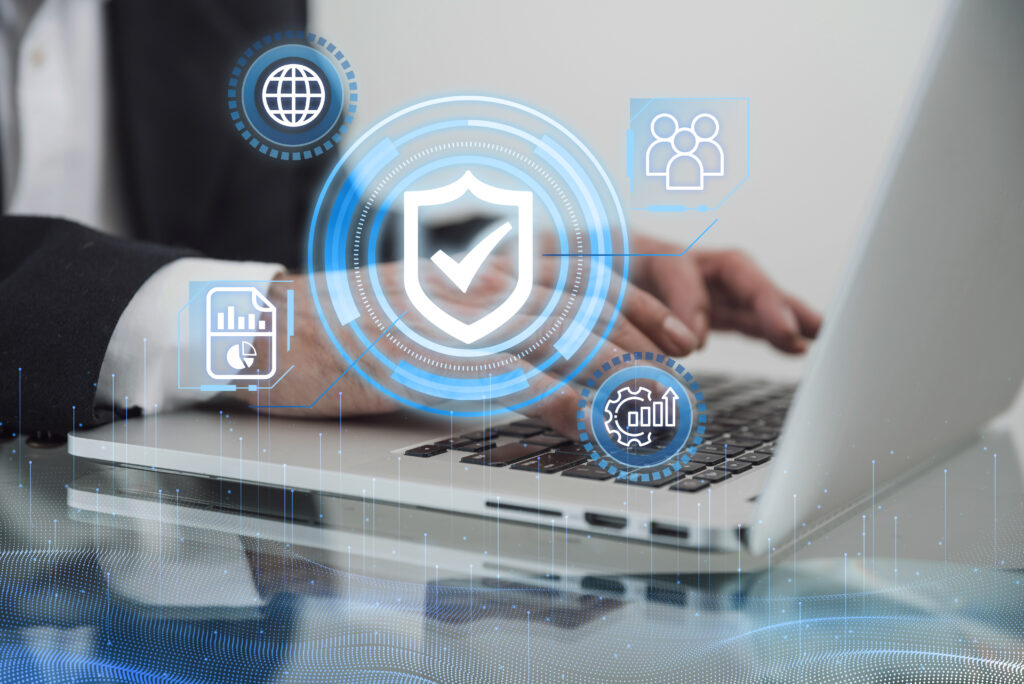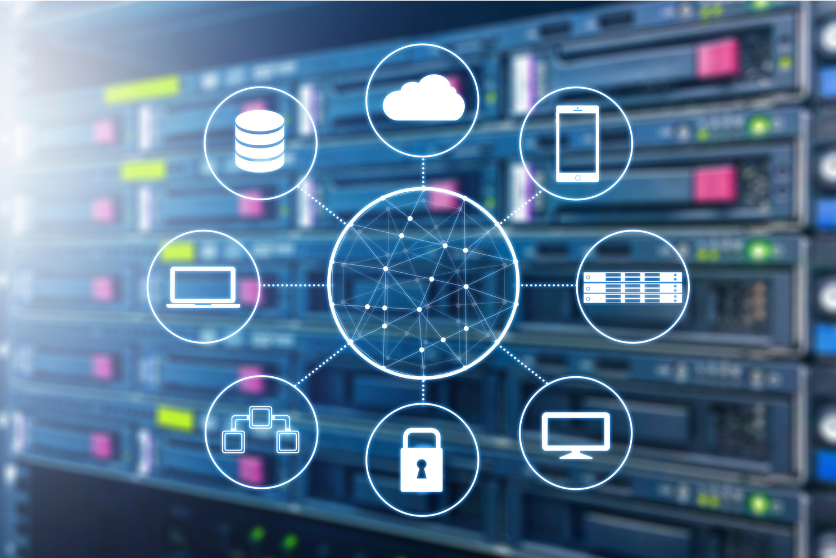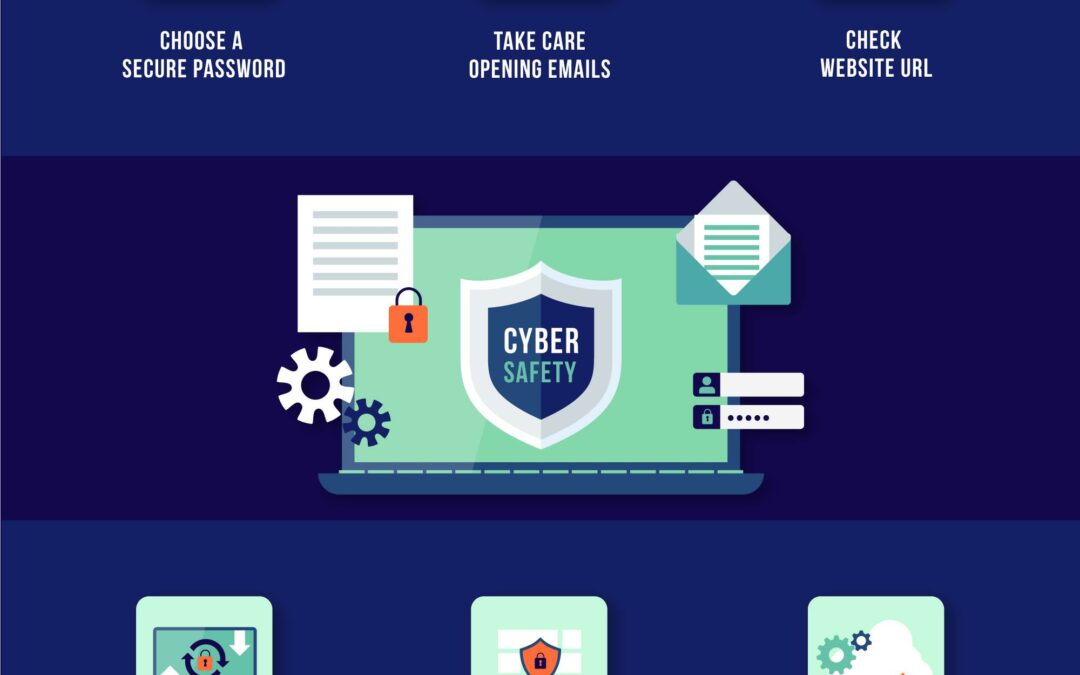The recent push for flexibility in working locations has undeniably benefited many employees, but it comes with inherent risks, particularly regarding cybersecurity. With the rise of data breaches and cyberattacks, businesses need to prioritize the security of their remote access systems. One effective solution is Virtual Private Networks (VPNs), which provide a secure connection for remote employees. Your real question may be, “How can I improve my business’s security with a VPN for remote access, and what are some actionable steps to implement one effectively?”
Enhancing Remote Access Security
When work can happen anywhere and anytime, ensuring the security of remote access systems has become paramount for businesses. As more employees connect to company networks outside the traditional office environment, organizations must proactively safeguard sensitive data and protect against potential threats. One effective way to achieve this is by utilizing Virtual Private Networks, or VPNs. VPNs offer enhanced privacy, encryption, and authentication protocols that bolster remote access security by creating a secure connection between remote devices and corporate networks.
TCS stays current on cybersecurity and the best ways to minimize their risks to your business. We can help you establish a VPN for remote access to allow your company to operate effectively, even when working remotely.

Understanding VPNs and Their Benefits
Before discussing the implementation details, it’s essential to understand VPNs and why they are crucial for remote access.
The Basics of VPNs
A Virtual Private Network (VPN) is a technology that creates a secure, encrypted tunnel between a user’s device and the private network they want to access. This tunnel acts as a shield, protecting data transmitted over public internet connections from interception or unauthorized access. When connected to a VPN, all online activity becomes encrypted, providing an additional layer of security for remote access scenarios.
Why VPNs Are Essential for Remote Access
When employees access company resources remotely, whether from home or while traveling, they rely on public internet connections that may be susceptible to various security risks. Without the protection of a VPN, valuable data could be intercepted by malicious actors lurking on the same network. A single mistake by an employee (like connecting to an unsecured Wi-Fi hotspot) could potentially compromise the entire organization. Therefore, a VPN for remote access is vital to mitigate these risks and ensure secure remote access for your business.
Implementing VPN for Remote Access
Now that we have explored the basics of VPNs and how they improve remote access security, let’s delve into practical considerations for implementing a VPN for remote access within businesses.
Configuring VPNs for Remote Employee Access
Once you’ve chosen your VPN for remote access, it’s essential to configure the VPN solution to meet your specific remote access requirements. Work closely with your IT department or service provider to set up and deploy the VPN client across all relevant devices used by remote employees.
If they do it themselves, ensure that employees receive clear instructions on installing and configuring the VPN client on their devices. Offer step-by-step guides and conduct training sessions to familiarize them with the VPN for remote access features and functionalities. Regularly update VPN software to benefit from the latest security enhancements and bug fixes.
Ensuring Compatibility and Scalability
Businesses evolve and grow, meaning their remote access requirements will change. Ensure the chosen VPN for remote access is scalable enough to accommodate increasing remote employees. Evaluate its compatibility with operating systems, device types, and network configurations to avoid future integration challenges.
Regularly assess your VPN implementation to identify bottlenecks or performance issues hindering productivity. Collaborate with your IT team or service provider to fine-tune the VPN for remote access settings and optimize its performance according to your business needs.

Ensuring Secure Remote Access
Implementing VPNs alone is not enough to guarantee secure remote access; additional measures should be taken to create a comprehensive security framework.
User Authentication and Authorization
Robust user authentication mechanisms are essential for maintaining the integrity of your VPN. Implement strict password policies, including minimum length requirements and different passwords for each account. Consider adopting two-factor or multi-factor authentication methods, requiring users to provide additional evidence (such as a mobile app code or biometric verification) alongside their credentials. Limit access privileges based on roles and responsibilities to minimize potential damage caused by unauthorized individuals.
Encryption Protocols for Maximum Security
Encryption plays a central role in securing VPN connections. Robust encryption algorithms scramble data sent between endpoints, making it unreadable to anyone intercepting the traffic. Commonly used encryption protocols include OpenVPN, IPsec, and SSL/TLS. Ensure your VPN solution utilizes modern encryption standards and regularly updates cryptographic algorithms to maintain optimal security.
Network Monitoring and Intrusion Detection
Effective network monitoring and intrusion detection systems complement VPN security efforts by providing real-time visibility into network traffic. Monitor VPN for remote access logs for any unusual activities or signs of intrusion attempts. Implement intrusion detection and prevention systems to automatically detect and block suspicious network traffic. Proactive monitoring enables prompt response to security incidents, minimizing potential damage and reducing the risk of successful attacks.
Benefits of Using a VPN for Remote Access
Privacy Protection
Privacy is a fundamental aspect of remote access security. When employees connect to unsecured public Wi-Fi networks, such as those found in coffee shops or airports, they put their data at risk of interception by malicious actors. VPNs encrypt internet traffic, shielding sensitive information like login credentials, financial transactions, and confidential documents from prying eyes. With a VPN, employees can confidently connect to the internet, knowing that their data remains protected regardless of location.
Direct Connection to the Private Business Network
For many businesses, enabling remote access means granting employees access to critical resources hosted on the corporate network. VPNs allow employees to establish a direct and secure connection to the private business network, providing seamless access to files, applications, and databases as if they were physically in the office. This capability ensures that employees maintain high productivity levels regardless of physical location, contributing to overall business efficiency.
Overcoming Geographical Restrictions
In some industries, employees may need to access geographically restricted content or services while working remotely. For example, market research analysts may require access to region-specific websites or streaming platforms for competitive analysis. A VPN for remote access can bypass geographical restrictions by routing internet traffic through servers in different regions, granting employees access to otherwise inaccessible resources. This feature enhances employee capabilities, fosters innovation, and enables companies to gain a competitive edge.
Increased Productivity
With the flexibility of remote access, employees can choose optimal work environments that suit their preferences and circumstances. VPNs play a vital role in maintaining high productivity levels by securely connecting employees to company resources, allowing them to collaborate seamlessly and complete tasks efficiently. By eliminating barriers associated with location, employees can focus on their work without worrying about compromised security or limited access to necessary tools.
Building Customer and Partner Confidence
Data breaches can have severe repercussions on customer trust and business partnerships. Demonstrating a commitment to data security is crucial for building confidence among customers, clients, and partners. By implementing a robust VPN for remote access, businesses showcase their dedication to safeguarding sensitive information, establishing themselves as trustworthy custodians of valuable data. This boost in reputation can lead to stronger relationships with stakeholders and contribute to long-term success.

Overcoming Challenges and Common Misconceptions
Balancing Security and Usability
While VPNs enhance remote access security, striking the right balance between security and usability is essential. Complex security measures, such as strict authentication requirements, may impede employee productivity and hinder adoption. Therefore, it is necessary to consider user experience carefully when configuring your VPN for remote access. Focus on finding the right combination of security measures that deliver maximum protection while allowing employees to perform their duties efficiently.
Addressing Bandwidth Limitations
One common concern when implementing VPNs is the potential impact on network bandwidth. Encryption and encapsulation processes used by VPNs introduce some overhead, which may slow down internet speeds. While this issue is more pronounced when using low-bandwidth connections, advances in VPN technologies have minimized these limitations. Optimizing VPN configurations and choosing a VPN for remote access that emphasizes performance can help alleviate bandwidth-related concerns and ensure smooth connectivity for remote employees.
Debunking Myths about VPNs
Despite the widespread use of VPNs, several misconceptions persist. It is important to dispel these myths to fully appreciate the value and benefits of VPNs for remote access security. Some common myths include assuming that VPNs are only useful for large enterprises, believing that free VPN services are as secure as paid ones, and thinking that VPNs slow down internet speeds significantly. Educate yourself and your employees on the realities of VPN technology to overcome any doubts or reservations that may hinder successful implementation.
Maximizing Productivity with VPNs
While VPNs primarily serve as a security tool, they can also enhance remote workers’ productivity in several ways.
Optimizing Bandwidth Usage
Businesses often need more bandwidth when connecting remote offices or individual employees to centralized resources. VPNs help optimize bandwidth usage by compressing data and prioritizing critical network traffic. By efficiently managing bandwidth allocation, VPNs ensure a smoother experience for remote workers, minimizing latency and maximizing productivity.
Collaboration Tools and VPN for Remote Access Integration
Modern workplaces heavily rely on collaboration tools and cloud-based applications. Many popular platforms integrate seamlessly with VPN for remote access solutions, allowing secure access to shared files, project management tools, and communication channels. Leveraging this integration streamlines workflows, enhances team collaboration, and promotes efficiency among remote teams.
Your Next Steps
Secure remote access is not merely a luxury; it is an absolute necessity for businesses. As the reliance on remote work continues to grow, implementing robust security measures, such as VPNs, becomes imperative to safeguard sensitive data and ensure uninterrupted operations.
Virtual Private Networks offer businesses an effective and cost-efficient way to upgrade their remote access security. By encrypting data, establishing secure connections over public networks, and masking IP addresses, VPNs fortify your defense against cyber threats and provide peace of mind.
Investing in a VPN for remote access tailored to your business needs empowers you to enjoy the advantages of remote work without compromising security. Contact Total Computer Solutions today for a free consultation, and our experts will help evaluate your VPN and security needs. We can establish secure private connections, enhance remote access security, and propel your business toward success.




